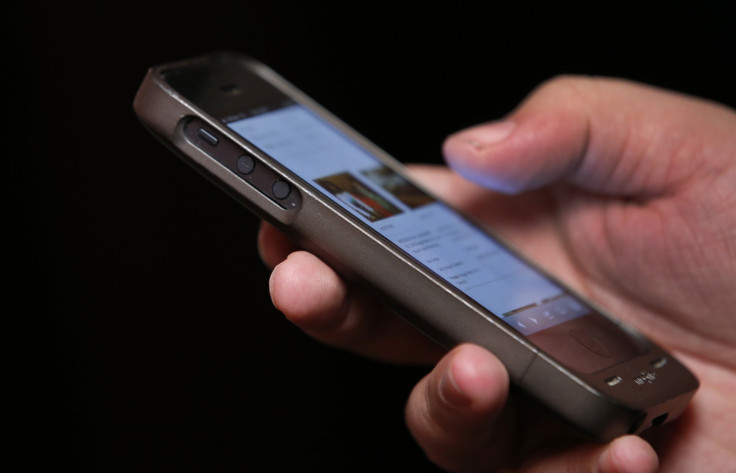Anxiety And Social Media: Brain's Addiction To Checking Accounts

If you get anxious when you don’t check your social media accounts you might want to cut down the amount of time you spend on them in the first place.
The total time we spend on social media has increased over the years. On Wednesday, Instagram announced it currently has more than 250 million daily users, and said those under the age of 25 spend more than 32 minutes a day on the platform, while those ages 25 and older spend more than 24 minutes a day. That means people under 25 are spending nearly four hours on Instagram during an entire week -- which is a lot.
Read: Facebook, Apple Pushing AR, But Many Americans Don't Know What It Is
“It’s not surprising,” Larry Rosen, professor emeritus of psychology at California State University and author of the book The Distracted Mind, told International Business Times.
The average person will spend more than five years on social media throughout their lifetime, a report by the agency Mediakix found. Those years are broken down to: one year and seven months for Facebook, eight months on Instagram, 18 days on Twitter, one year and two months on Snapchat and one year and 10 months on YouTube. Time spent on social media was more than the amount spent on eating and drinking throughout a lifetime, by about two years.
The amount of time people spend on social media is high -- and it isn’t going down.
“We’re not even close to where it’s hitting its peak,” said Rosen, pointing out how fast Snapchat and Instagram grew. “Those kind of platforms are going to be there because they are money makers, attention getters.”
Read: Online Hate: YouTube Hides Supremacist Videos But Won't Take Down
Rosen recently worked on a study that looked at how often college students check their smartphones. In the study, which is set to be published in The Spanish Journal of Educational Psychology, Rosen and his colleagues found participants opened their devices 60 times a day for 220 minutes in the spring of 2015. In a separate study, Rosen found students opened their device 50 times a day for 262 minutes in 2016. Although the amount of times decreased, the time spent on the device increased by more than 40 minutes -- probably because they're spending more time on social media.
“We have kind of dug ourselves into a hole where we feel the need to check in often [on social media],” said Rosen. “You’re constantly feeling this urge or need.”
When you don’t check in on social media, chemicals in your brain make you slightly anxious. The anxiety is linked to the need of going on social media and looking at what your friends are up to. Notifications popping up on you screen when someone messages you, even the small numbers next to the app on your screen, can drive the anxiety, Rosen said.
Once you start feeling the need to look at your social apps, you’ll start showing signs like palm sweat, armpit sweat or butterflies in your stomach, depending on how your body usually reacts when you’re nervous. Because of those feelings, you give in and end up checking your social media to make the anxiety go away.
So how much time is a decent amount to dedicate to social media a day? The amount of time in which you don’t feel anxiety to check in to your social apps anymore, Rosen said. That means that if you’re mind is constantly telling you to look at your phone, then you’re probably already doing it too much.
“Once you control your chemistry, you won’t need to check in as often,” he said.
Unfortunately, limiting the time you spend on social media triggers the chemical more, Rosen said, but there still are ways to keep the anxious chemicals under control.
You can try checking in on a schedule, but the “problem is that it’s going to make you crazy in the beginning,” Rosen said. Plus, your friends might be wondering where you are, since you have already trained everyone that you constantly check in.
“We have really overtime gotten over committed to keeping up,” said Rosen.
One to way to cut down on social media usage is getting rid of notifications that drive up the chemicals in your brain.
High Mobile Device Usage
Overall, the amount of time we spend on our mobile devices is high. People spend an average of five hours a day on their mobile devices, according to a report by analytics firm Flurry released this spring. Apps take up 92 percent of the time people use their devices for. Facebook, messaging and social apps along with music, media and entertainment applications took up most of the 92 percent, leaving just some room for YouTube and Snapchat. Meanwhile, browsers, which include gaming, weather, productivity, sports and shopping activity, took up eight percent.
Even having you smartphone in front of you face down could make you anxious. Researchers at the McCombs School of Business at the University of Texas at Austin recently found that the mere presence of your smartphone, even if it’s off, can reduce brain power.
© Copyright IBTimes 2024. All rights reserved.





















